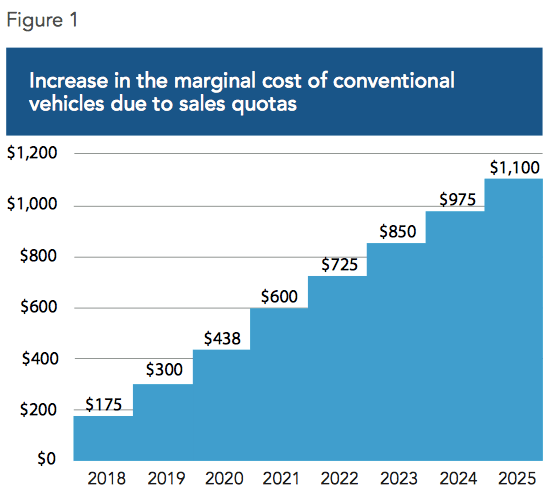Google Vs. DOJ: Back In Court Over Search Monopoly Concerns

Table of Contents
The DOJ's Case Against Google
The DOJ's case rests on allegations of anti-competitive practices that have allowed Google to maintain its stranglehold on the search engine market. Their argument centers on Google leveraging its market power to stifle competition and harm consumers.
Allegations of Anti-Competitive Practices
The DOJ accuses Google of engaging in several anti-competitive behaviors to maintain its dominance. These include:
- Exclusive agreements with mobile carriers and phone manufacturers: The DOJ alleges that Google paid billions to these companies to ensure that Google Search and Chrome were pre-installed on Android devices, effectively locking out competitors. This tactic, according to the DOJ, prevented users from easily accessing alternative search engines and browsers.
- Anti-competitive contracts with device manufacturers: The lawsuit cites contracts that restricted manufacturers from pre-installing competing search engines or browsers, significantly limiting consumer choice.
- Strategic acquisitions: The DOJ argues that Google's acquisitions of promising search technology companies served to neutralize potential competitors and cement its dominance.
These claims are supported by detailed legal arguments and extensive evidence presented in court filings. [Link to relevant court documents]. [Link to news article summarizing the allegations].
Impact on Consumers and Competition
The DOJ argues that Google's actions have significantly harmed consumers and competition. By limiting choice and innovation, Google's alleged monopolistic practices lead to:
- Reduced innovation: With less competition, there is less incentive for Google to innovate and improve its search engine, potentially resulting in a stagnant and less effective search experience.
- Limited consumer choice: Users are effectively locked into Google Search, preventing them from exploring alternative search engines that might offer different features or perspectives.
- Potential for higher prices: A lack of competition in the long run can lead to higher prices for advertising and other services related to online search.
Alternative search engines like DuckDuckGo, Bing, and others exist, but they hold a significantly smaller market share compared to Google's overwhelming dominance.
Google's Defense Strategy
Google vehemently denies the DOJ's allegations, arguing that its success is a result of superior products and user preference, not anti-competitive practices.
Arguments Against Monopoly Claims
Google's defense centers on several key arguments:
- Meritocratic success: Google contends that its market share is a result of providing a superior product that consistently meets and exceeds user needs and expectations. They highlight their investments in R&D and constant improvements to their search algorithms.
- Free market competition: They argue that the search engine market is highly competitive, with numerous players vying for users' attention. They point to the continued existence and growth of alternative search engines as evidence of a dynamic market.
- Innovation and user choice: Google emphasizes its continuous innovation in search technology, highlighting features like AI-powered search and personalized results as examples of user-driven improvements.
[Link to Google's official statement on the lawsuit].
The Role of Innovation and User Choice
Google maintains that its dominance is a direct result of offering a superior product that users choose organically. They cite the "network effects" – the increased value of a product or service as more people use it – as a natural consequence of providing an effective and widely-used search engine. This network effect, they argue, is not a result of anti-competitive practices, but rather a testament to their product’s success. Google also presents data showing strong user preference for their search engine.
Potential Outcomes and Implications
The outcome of this lawsuit carries profound implications for Google, the tech industry, and consumers.
Possible Court Decisions and Their Impact
Several potential outcomes are possible:
- Fines: Google could face significant financial penalties for violating antitrust laws.
- Structural changes: The court might order Google to divest certain assets or alter its business practices to increase competition.
- Changes in business practices: Google might be forced to change its agreements with phone manufacturers and mobile carriers, allowing for fairer competition.
The precedent set by this case will significantly influence future antitrust lawsuits against major tech companies.
The Broader Context of Tech Regulation
The Google vs. DOJ lawsuit highlights the broader ongoing debate about the regulation of Big Tech. This case is not isolated, as other major tech companies face similar antitrust scrutiny. [Mention other relevant antitrust cases, e.g., cases against Facebook/Meta]. The decision in this case will significantly shape the future of antitrust enforcement in the digital age and the role of government in promoting competition in the online marketplace.
Conclusion
The legal battle between Google and the DOJ over alleged monopolistic practices in the search engine market is a pivotal moment for the tech industry and consumers. The DOJ argues that Google's actions have stifled competition and harmed consumers, while Google defends its dominance as a result of innovation and user preference. The court's decision will have far-reaching consequences, affecting not only Google's future but also the broader landscape of online search, competition, and tech regulation. Stay informed about the Google vs. DOJ case and its implications for the future of online search and digital competition. Understanding the nuances of this "Google search monopoly" debate and the DOJ's antitrust lawsuit is crucial for anyone interested in the future of digital competition.

Featured Posts
-
 Microsoft Activision Deal Ftcs Appeal And Its Implications
Apr 22, 2025
Microsoft Activision Deal Ftcs Appeal And Its Implications
Apr 22, 2025 -
 Open Ais Chat Gpt Under Ftc Scrutiny Implications For Ai Development
Apr 22, 2025
Open Ais Chat Gpt Under Ftc Scrutiny Implications For Ai Development
Apr 22, 2025 -
 Trumps Economic Agenda Who Pays The Price
Apr 22, 2025
Trumps Economic Agenda Who Pays The Price
Apr 22, 2025 -
 Resistance Grows Car Dealers Push Back Against Electric Vehicle Quotas
Apr 22, 2025
Resistance Grows Car Dealers Push Back Against Electric Vehicle Quotas
Apr 22, 2025 -
 Dealers Double Down Fighting Back Against Ev Sales Requirements
Apr 22, 2025
Dealers Double Down Fighting Back Against Ev Sales Requirements
Apr 22, 2025
